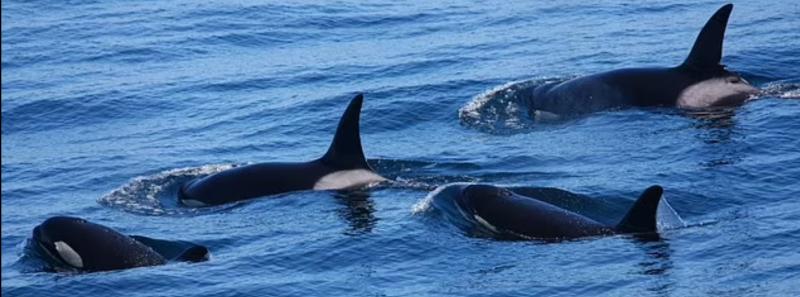 Another reminder of how little we know and understand about orca whales. Scientists have identified a new type of orca, also known as killer whales, off the US and Canadian Pacific West Coast. Termed ‘outer coast transient whales,‘ the newly discovered orca type preys on large sea mammals, prefers deepwater for hunting, and has a unique high-pitched vocal dialect. Experts believe they are a subset of transient orcas known as Bigg’s killer whales.
Another reminder of how little we know and understand about orca whales. Scientists have identified a new type of orca, also known as killer whales, off the US and Canadian Pacific West Coast. Termed ‘outer coast transient whales,‘ the newly discovered orca type preys on large sea mammals, prefers deepwater for hunting, and has a unique high-pitched vocal dialect. Experts believe they are a subset of transient orcas known as Bigg’s killer whales.
For decades, orcas along the North American West Coast have been categorized in two groups — residents and transients. Transient orcas are now often referred to as Bigg’s killer whales in honor of Canadian marine biologist Micheal Bigg, who was the first to identify the difference between the two primary types of killer whales in the Pacific Northwest.
Resident orcas swim in well-defined pods, eat primarily fish and return every year to the same area. Other orcas swim in smaller pods, eat primarily marine mammals and tend to be transient. Bigg observed that the residents and transients did not interact and had developed identifiable fin shapes and coloration.
The newly identified outer coast transient whales differ from Bigg’s killer whales in preferring to hunt in the Pacific’s deepwater canyons, rather than closer to shore. They also prey on large sea mammals including baby grey whales, elephant seals, and oceanic dolphins, whereas Bigg’s transients prefer smaller mammals such as harbor seals and porpoises. Additionally, the outer coast transient whales have a unique higher-pitched vocal dialect that is different from other transient orcas in the coastal waters along the Pacific Northwest, possibly so they can be heard above the low roar of offshore winds.
The Daily Mail reports that scientists analyzed over 100,000 photographs taken off the Canadian and US west coasts and of the 155 encounters from 2006 to 2019, most of the new killer whales were spotted in the offshore waters between Oregon and central California. Twenty-six of them were also found off Vancouver Island.
Prior to this study, coastal and outer-coast transient whales were assumed to belong to a single population, but this latest research suggests they may actually be a mix of multiple pocket communities — each with a unique culture.
